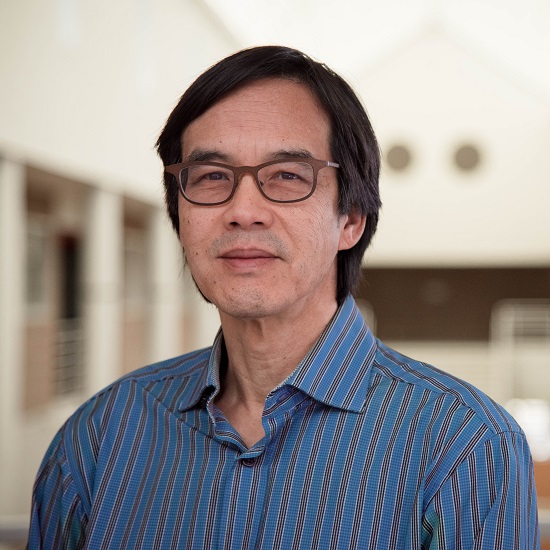
Peter Wong has been a professor at UNC Charlotte for more than 30 years. In that time, he has watched the field of architecture itself grow and expand, as well as the UNC Charlotte School of Architecture.
“Practice has influenced architectural education, but it's also come about through the change in technology, such as digital and computational technologies,” he says. “In all fields, technology has altered the practice of major professions.”
Architects use these technologies to find new ways to better inform design decisions. Wong’s current research is a case in point. Using eye-tracking technology, he studies the way we perceive and respond to space.
In his research, Wong is particularly interested in the way people look at indeterminate scenes, where there may be an edge or opening in the space that makes a participant’s eye wander outside the actual range of space. It may be a window or a wall that gives us the impression that space continues beyond the visual field of the scene. Whether looking at pictures of rooms or actual rooms, the hypothesis is that people will look at the scene longer if there are architectural features that project out of the room, anticipating the next space.
Wong sees an opportunity for this research in addressing affordable housing challenges. Affordable housing is a big issue across the country, especially in denser cities such as Chicago, Boston, New York, and even Charlotte. One way to make housing affordable is to make it more compact.
“How do you create affordable places for people that might be smaller and not typical but still have the feeling that it is big? Is there a way to psychologically relieve people from small spaces by these implied spaces that give the impression of a virtual largeness or expansiveness?”
In addition, Wong is interested in grassroots research that goes into communities to hear directly from residents affected by housing costs and gentrification. Recently, he participated in Associate Professor of Architecture and Urban Design Nadia Anderson’s in workshop in West Charlotte to get input from people who live in Charlotte’s rapidly changing Ashley Park neighborhood. The challenge, he says, is “to balance the need for a community to offer amenities to the neighbors that are there, without them being displaced, and the economic demands for development.”
With Chris Jarrett, the director of the School of Architecture, Wong created designLAB, a research center in the School of Architecture, in 2015. Working with undergraduate and graduate research assistants they address professional and theoretical architecture issues, generating design ideas through speculative projects for competitions. DesignLAB has completed nearly 20 projects and won several awards, including an Honorable Mention in the 2019 Timber in the City: Urban Habitats Competition presented by the Association of Collegiate Schools of Architecture (ACSA), third place in the 2018 ACSA/AISC Steel Design Student Competition, and second place in the 2017 New York City Affordable Housing Competition.
By Mayra Trujillo-Camacho